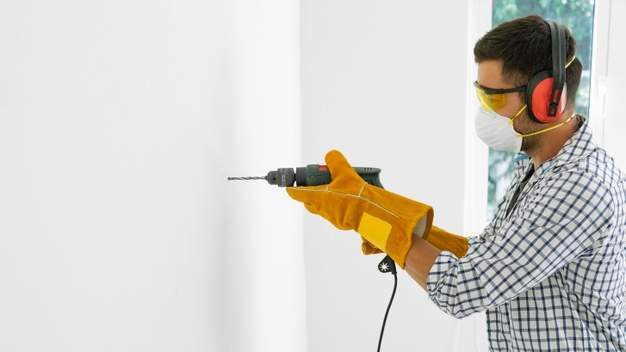Drill: How To Choose The Model Suitable For Your Needs

The drill has nowadays become a tool of fundamental importance, both for professionals and for DIY lovers. The uses that can be made of it have become so numerous and so simple to perform that many people choose to Buy Online Power tools in Dubai.
The models, types, functions have multiplied over time, making this instrument a multifunctional power tool that is even safer, more precise, and easy to handle.
Choose a drill
Whether you are a professional or an amateur, to choose a drill the first consideration to make is essentially one: what work will you have to do with this machine?
Different uses require different drills and functions. Precisely for this reason, we have decided to help you in your choice, listing some of the main features to take into consideration when choosing the drill that best suits your needs.
Electric or battery drills
The first differentiation to make is precisely the type of power supply of the drill, in fact, as mentioned above, the rapid technological evolution, specifically in this sector, today gives us the possibility of being able to purchase electric machines suitable for the most disparate uses or powered drills. from batteries, which especially in the professional versions have reached very high levels of duration, so as to satisfy increasingly specific and advanced needs.
Whether to choose one model over another, in this case, depends a lot on the type of work to be done and above all on where this work must be done. In fact, if the electric current models guarantee greater autonomy, not having to depend on a limiting power supply, battery drills allow us to work even in places where there is no possibility to connect to the electricity grid.
Types of drills on the market
The second categorization of drills can be made based on the type and functions that the machine can perform. In particular:
Classic drills: i.e. electric drills, also called basic drills, which perform simple drilling, screwing, or unscrewing functions. These templates allow you to drill into materials such as wood and metal;
Percussion Drills: This type of drill adds percussion to the classic rotary function. This feature allows you to drill deeper holes and tackle harder materials such as concrete and brick. In some of these models, especially the more professional ones, it is possible to make adjustments such as revolutions, frequency, the possibility or not of activating the percussion and deciding its intensity. A note to add to what has been said refers to the weight, these drills in fact, as the engine power decreases, can reach considerable weights, usually between 2 and 6 kg, so as you can see also in this case the choice must be carefully evaluated in based on the use you plan to make of it;
Column drills: this kind of drill, mostly bench-mounted, is housed on a supporting column, from which it takes its name, which can slide vertically and rotate. It rests on a base generally in cast iron on which vice can be fixed. Usually, these machines have important dimensions and are difficult to transport. They can drill large holes and provide higher accuracy than other drill models. They are generally purchased for professional use;
Screwdrivers: particularly suitable for working with wood, plasterboard, or sheet metal or for making small, non-binding holes in these materials. They are usually used with inserts for tightening screws and bolts. They generally have very small dimensions and weight;
Right angle drills: this kind of drill has the particularity of having the tip at a right angle, making some operations easier that could not be performed with straight tip drills. Today there are some inserts on the market that allow you to transform straight tip drills into angle screwdrivers;
The tips
In addition to drills, we cannot forget the bits, which connected to the drill allow us to drill holes. Again, different materials need different tips. These can have different diameters according to the width of the hole to be made. Let’s see a general classification:
Iron tips: usually made of steel, they have diameters between 1 mm and 20 mm. On the market, it is also possible to find larger or slightly smaller than the dimensions indicated but these are particular and sectorial products that we will not discuss in this article.
Wood drills: also in this case they are steel drills, the substantial difference between these and those for wood is that the latter has a pointed centering point that acts as a guide for
drilling. The diameter of these tips varies from 3 to 13 mm;
Wall drills: the material they are made of is always steel, they have the characteristic of having two small hard metal plates on the tip.
Ultimately you are a DIY lover or you need a drill to carry out your chores at home independently, the advice we feel we can give you is to choose an intermediate model, possibly percussion, that allows you to perform jobs such as drilling, small anchoring, screwing and using various inserts and accessories it will be possible to carry out many other small household chores.
You are a Professional, in this case, the drill that best suits your needs depends a lot on the use you intend to make of it. In the store we have many models and brands of drills of all types, if you are looking for a drill for a specific use, get in touch with us, we will be happy to give you the best advice to choose the right machine for your job.
We invite you to take a look at the various models included in our e-commerce, recommending that you always choose quality, especially if you are thinking of purchasing machines that can put your personal safety at risk.


